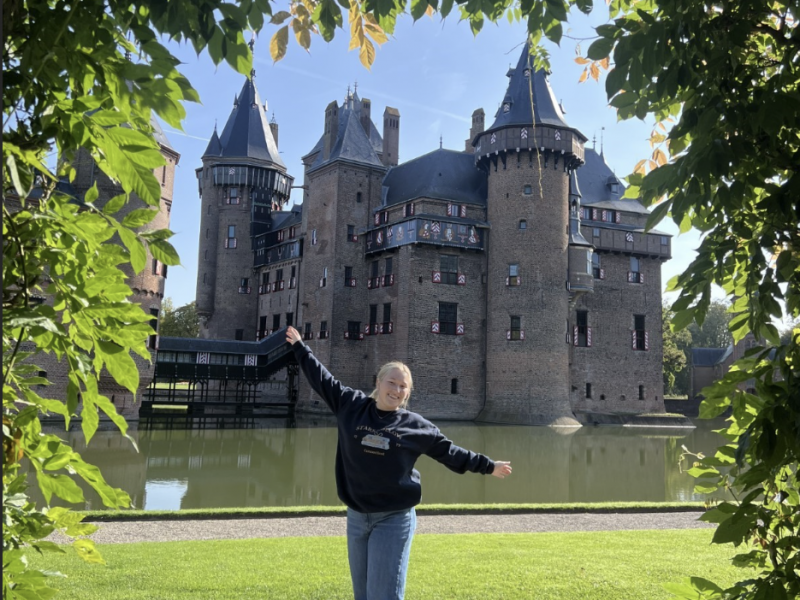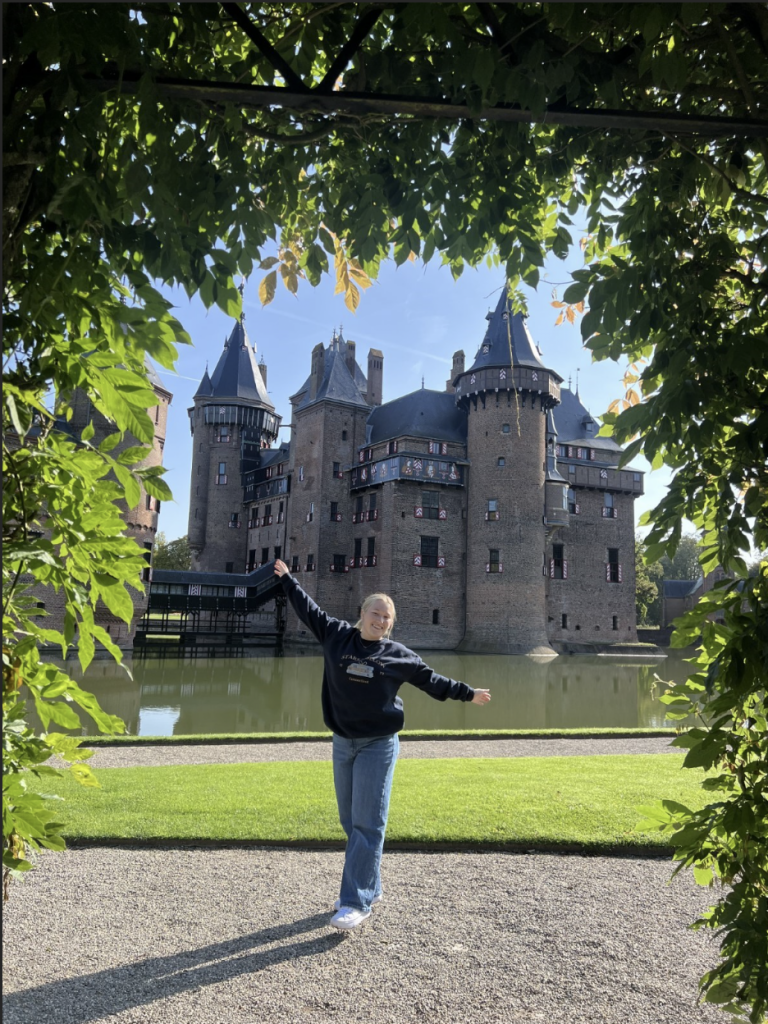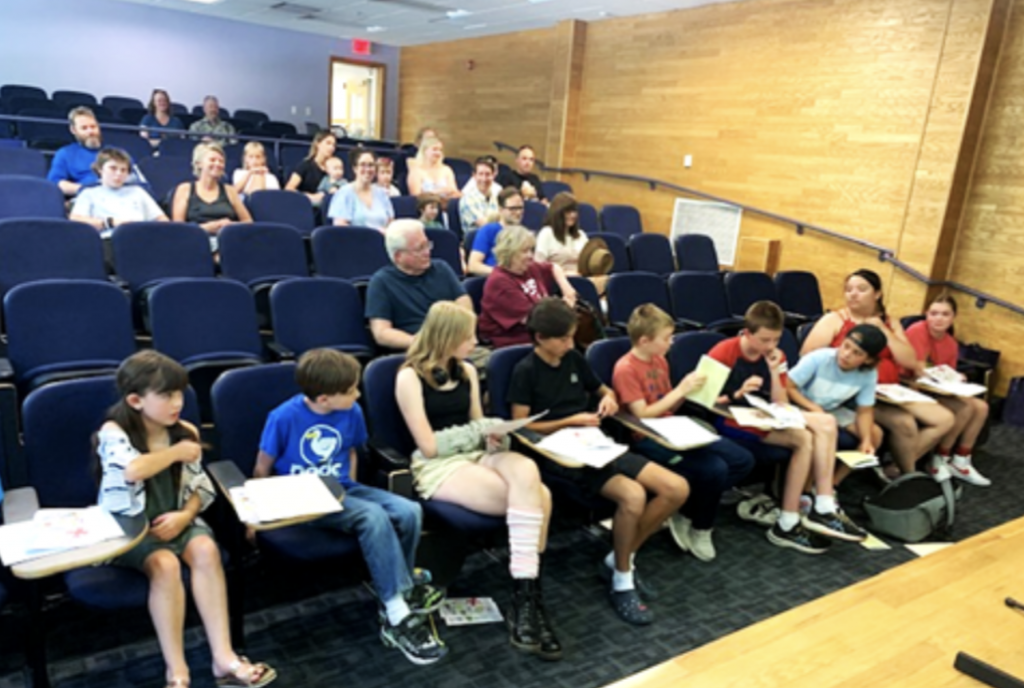College of Arts and Letters spotlight: The Department of English
In addition to a seasonal newsletter that highlights news and accomplishments from across the college, the College of Arts and Letters will be periodically creating blogposts featuring a specific unit, event, series, and so on. The first unit we are shining a spotlight on is the Department of English. The Department of English has been extraordinarily productive and some of their ‘kudos and shout outs’ from the late spring through the mid-fall are given here. We hope you enjoy learning about their creative, scholarly, pedagogical, community-oriented, and groundbreaking achievements!
University Awards Roundup
Ryan Drendel, RCA Award: Graduate Artistic/Creative Work Mentorship
Christine Davis, College of Arts and Letters Teacher of the Year
Okim Kang, Scholarly and Creative Activity Award
Scott Jarvis, McKenzie Endowment for Democracy Award
Luke Plonsky, OURCA Faculty Mentor Award
Lawrence Lenhart, OURCA Faculty Mentor Award
Lindsey Gallagher, RCA Award: Most Promising Graduate Student/Artistic Creative Scholar
Career Exploration/Workplace Skills
First offered as an online course to meet pandemic needs, English 120, Introduction to Workplace Writing, is now also offered to students as a hybrid-learning opportunity on the Flagstaff Mountain campus. Students meet in-person and complete digital course content to receive an introduction to workplace writing in diverse professions to identify professional interests and develop skills for future employment.
Erika Konrad is developing a new course on artificial intelligence for Professional Writing; Beatriz Perez, Alana Kuhlman, and Taylor Thompson are also creating a course entitled Navigating AI in Academic and Workplace Writing to be launched as a 100 level topics course in the Fall of 2025.
Research & Scholarship
Steven Acton successfully defended his dissertation for a PhD in Curriculum and Instruction.
Ira J. Allen published a new book, Panic Now? Tools for Humanizing, with University of Tennessee Press. He was interviewed about its implications for AI at the Prose & Processors substack; for extinction and climate collapse on the podcast For Your Reference; and for democracy generally on the podcast The Interesting Times. His article, “To Enjoy ‘Less’ More: Chastened Humanism and Degrowth,” was published in Degrowth Journal. He also joined the editorial boards of the journals Philosophy & Rhetoric and College Composition and Communication.
Lisa Ashley was one of 25 faculty from across the country to be awarded a three-week residence to study “Place, Race, and Gender in New England Gothic Literature” at the NEH Summer Institute for College Faculty at Saint Joseph’s College of Maine.
Jeff Berglund and Alana Kuhlman both received Transformation through Artificial Intelligence in Learning (TRAIL) grants for Summer 2024.
Sandra Davis received an Open Educational Resources (OER) summer grant to develop a textbook for ENG 300.
Marinela Golemi gave a conference presentation, “‘Somos Romeo y Julieta, pero más modernizado’: Eroticizing Star-Crossed Lovers in Popular Latin Music” (co-authored with Galileah Sanchez) at the Borderlands Shakespeare Colectiva in San Antonio, Texas in March 2024. She also gave a seminar presentation, “Othello, The Moor of Vlora: Local Race Politics in Albanian Novel Tradaptations,” at the Shakespeare Association of America in Portland, Oregon in April 2024.
Laura Gray-Rosendale’s book with Barbara Gleason, Basic Writing in the Twenty-First Century, is in production/in press with Peter Lang Publishers. It is part of the special series on Studies in Composition and Rhetoric with Alice Horning. The book offers a cutting-edge survey of basic writing practices, issues, and scholarship as well as a much-needed resource for all writing instructors and scholars. Gray-Rosendale’s chapter, “Re-membering ‘Memoria’: The Value of the Personal within Academic Discourse for Our Contemporary Moment,” was published in a book edited by Asao Inoue, Wendy Olson, and Siskanna Naynaha. Her research about sexual violence on university campuses is reaching global audiences, her latest interview appearing in a journal in South Korea.
Angie Hansen was selected as a 2024 Faculty Advisory Council (FAC) member for the Seven Generations Indigenous Knowledge Center (7Gen Center).
Scott Jarvis served as an “opponent” for two dissertation defenses in May: one at the University of Jyväskylä, Finland on the topic of complexity in learner language, and another one at the University of Oslo on the topic of language-specific conceptualization among bilinguals.
Kim Hensley Owens presented at the Writing and Wellbeing Conference in Tucson in March and at the Conference for College Composition and Communication (CCCC) in Spokane in April. Her article, “‘I Will Be Your Standing Stone’: Multimodal Listening on Zoom as an Ethic of Care,” was published in Intraspection.
Geetha Iyer has an essay in Ecotone and short fiction in the journal Story.
Okim Kang was a plenary speaker at the American Association of Applied Linguistics conference in Houston, Texas. Her talk was titled, “Acting to change [our] perspectives: Social judgments, bias, and mitigation.”
Tove Larsson presented a plenary at ICAME, one of the world’s premier conferences in corpus linguistics, in Vigo, Spain, “Cumulative knowledge building in corpus linguistics: Testing specific hypotheses about language and register.” She published seven articles and gave eight peer-reviewed conference presentations in Spain, Sweden, the UK, and the US.
Lawrence Lenhart published Experimental Writing: A Guidebook and Anthology (Bloomsbury Academic). He also wrote, produced, composed, and performed the rock opera, Pop Goes the Ferret! (a cowpunk fantasia), with colleagues in Theater, Music, and Honors. The rock opera premiered in May at the ARTx Festival. On behalf of the Northern Arizona Book Festival, he received the 2024 Viola Award for Community Impact Organization. He is a member of the inaugural 7thGen Faculty-Exchange Program with Tribal Colleges and Universities.
Meghan Moran Wilson and Christine Davis took part in the CROW fellowship this summer, learning how to use corpus-based materials to better serve their English 105 students.
Luke Plonsky Luke Plonsky published a new, open-access book titled Open Science in Applied Linguistics. He gave a keynote address at Sorbonne Nouvelle University (Paris) at Teaching and Learning English as a Foreign Language in Educational Settings. He also gave an invited lecture at University of St. Andrews (Scotland), where he also holds an Honorary Professorship in their International Education Institute.
Ekaterina Sudina, NAU Applied Linguistics alumna (2022), accepted an offer for and has recently begun a tenure-track position in University of Maryland’s program in Second Language Acquisition.
Naoko Taguchi completed the co-edited volume, Encyclopedia of Applied Linguistics: Area – Pragmatics (Wiley).
Naoko Taguchi (“Listening and Pragmatics”) and Vito Miao, Meghan Moran, and Okim Kang (“Listening to Different Spoken Varieties”) contributed to The Routledge Handbook of Second Language Acquisition, which came out in summer 2024.
KT Thompson co-presented “Entangled Spaces: Showcasing What Arts and Humanities Do for the World” at the CAL Arts & Humanities Showcase.
Nicole Walker was interviewed by Bloomberg, Democratic Women National Congress, States Newsroom, Arizona Abortion Access, Florida Yes on 4, and three Tokyo newspapers. This work has informed her work on the book, Writing the Hard Stuff, due to Bloomsbury is September. She also agented her book, How to Plant a Billion Trees. Walker has essays forthcoming from Ecotone and River Teeth. Her review of Zöe Bossiere’s Cactus Country: A Boyhood Memoir was published in New Ohio Review. With Geetha Iyer, she judged a writing contest at Lowell Observatory. She is currently planning NonfictioNOW, which will be June 11-13, 2025 in South Bend, Indiana.
Events
English hosted its first “Fredliness Group” meeting on September 6th, where faculty and students across the College of Arts and Letters came together for cookies and conversation to build community based on the life philosophy and teachings of Fred Rogers. This group will meet once a month to discuss topics surrounding kindness to oneself and kindness to others. Co-founders of the group are Dr. Jesse Egbert and Dr. Angie Hansen.
The Young Authors & Teen Authors Camps, held on June 4-8, 2024, were an outstanding success! Campers ages 8-14 wrote poems, stories, and non-fiction, participated in various art activities, and created a collective zine celebrating their work. Thanks to assistant teaching professor Andie Lenhart, academic program coordinator Cailin McCready, and grad students Lila Keane & Haley Castillo.
Sigma Tau Delta held their first event of the semester on September 4.. English students reviewed scholarship, internship, and conference opportunities while making buttons. The faculty advisor for the club is associate teaching professor Christine Davis.
Melanie Goetter is currently studying abroad in the Netherlands, thanks to the Gary Kane Study Abroad Scholarship.
Here is an update from Melanie:
I’ve been in The Netherlands for about a month now and am loving it here! I’m living in Nijmegen which is on the southern end near the border of Germany. I ride my bike everywhere I go, and have classes a few times a week. I am taking courses in Global Citizenship and Teacher Identity this period. For Global Citizenship, I’ve had the opportunity to travel to Texel, an island in the northern area of the country. We spent three days there and my group did research on a family who’s owned a sheep farm for seven generations! Later this month, we will also travel to Brussels, Belgium to learn how parliament works. I’ve also gotten to travel to Amsterdam, The Hague, Utrecht, Arnhem and Zaanse Schans on my own time. I’ve learned a lot about Dutch culture! Through tours and museums, I’ve seen lots of historical aspects of The Netherlands like WW2 times or how the windmills were used in their prime. I’ve also done fun things like taking a Stroopwafel class or spending time with Dutch classmates. My program has an extremely diverse group of future teachers from Spain, Germany, Ireland, Austria, Taiwan, Mongolia, Hong Kong, Italy, Zimbabwe, Romania and a few other places! It has been absolutely amazing to connect with so many like-minded people from all different cultures. The experience has opened my eyes to all the similarities we share despite where we come from. I am extremely grateful for your generosity and this opportunity. I have already grown so much as a person and as an aspiring educator and can’t wait to see what the next months hold!


